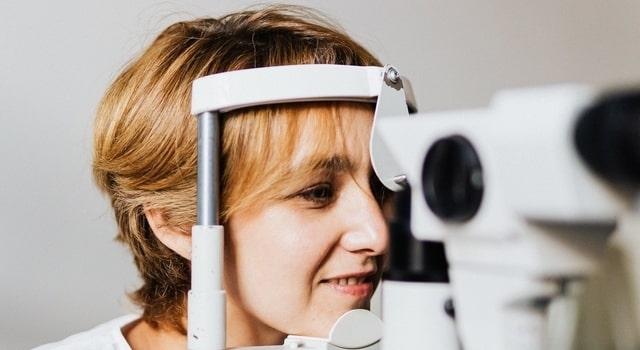
In today's health-conscious society, regular eye check-ups are essential for maintaining good vision and overall well-being. However, many people rely solely on basic vision screenings, believing these are sufficient for detecting eye problems. In this blog, we'll discuss what vision screenings can and cannot detect. We will also explore why comprehensive eye exams are crucial for a better understanding of your eye health.
What is Vision a Screening?
Vision screenings are preliminary tests that assess basic visual sharpness, typically conducted in schools, workplaces, or primary care settings. These screenings often involve refraction tests. During these tests, you'll read letters from an eye chart to measure vision clarity. The aim is to identify people needing further evaluation.
Vision screenings can flag cases where visual acuity is below the standard 20/20 vision, allowing scope for further examination. However, these screenings have limited scope as they cannot detect more severe eye conditions.
Limitations of Vision Screenings
While vision screenings are helpful, they have significant limitations. They cannot detect many eye conditions, including:
- Glaucoma: A group of eye conditions that damage the optic nerve, potentially leading to blindness
- Cataracts: Clouding of the eye's lens, which can cause vision impairment
- Macular Degeneration: A disease that affects the central part of the retina, leading to loss of central vision
- Diabetic Retinopathy: Damage to the blood vessels in the retina caused by diabetes
- Eye Alignment Issues: Problems such as strabismus (crossed eyes) or amblyopia (lazy eye)
The Importance of Comprehensive Eye Exams
Comprehensive eye examinations go beyond basic vision screenings. They include a series of tests that examine the eye's health and the quality of vision in detail. During a comprehensive exam, an eye doctor will:
- Assess visual acuity using different methods
- Measure the refractive error to determine the prescription for glasses or contact lenses
- Check eye alignment and muscle function
- Examine the health of the retina, optic nerve, and other eye parts using advanced imaging technology
- Test for eye pressure to screen for glaucoma
- Look for signs of systemic conditions such as diabetes and hypertension that can affect the eyes
Comprehensive eye exams can, therefore, detect conditions that basic vision screenings will miss. Early detection is critical for managing eye health. We can treat many eye diseases more effectively if caught early.
For more information about the comprehensive eye exams we provide, visit our comprehensive eye exams page.
What is Refraction in an Eye Exam?
Refraction is a critical component of a comprehensive eye exam that measures how light bends as it passes through the eye. It helps determine the right corrective lenses prescription for eyeglasses or contact lenses by identifying refractive errors such as:
- Myopia (Nearsightedness): Difficulty seeing distant objects clearly
- Hyperopia (Farsightedness): Difficulty seeing close objects clearly
- Astigmatism: Blurred vision due to an irregularly shaped cornea
Making Informed Decisions About Eye Health
Understanding the limitations of basic vision screenings is crucial for making informed decisions about eye health. While screenings are a helpful first step, they are not substitutes for comprehensive eye exams. Adults of all ages should prioritize regular comprehensive eye exams to ensure their eyes are healthy and detect potential issues early.
Being proactive about eye health can preserve your vision and help you enjoy a higher quality of life. If you've only experienced basic vision screenings, consider requesting a comprehensive eye exam at Northwest Eye Center to understand your eye health fully.
